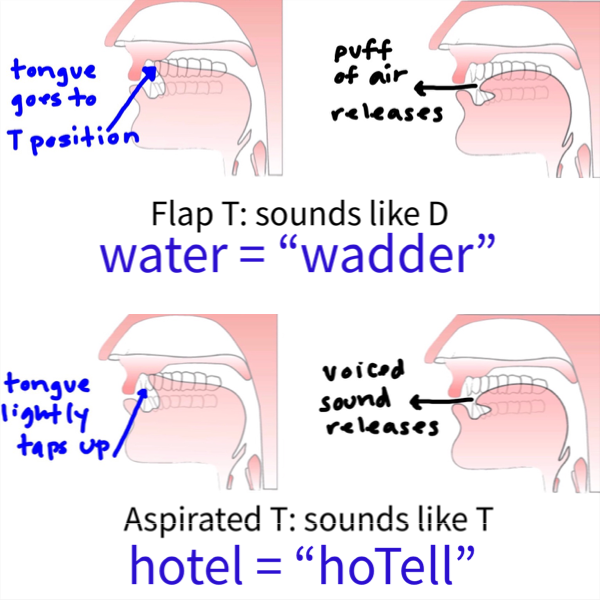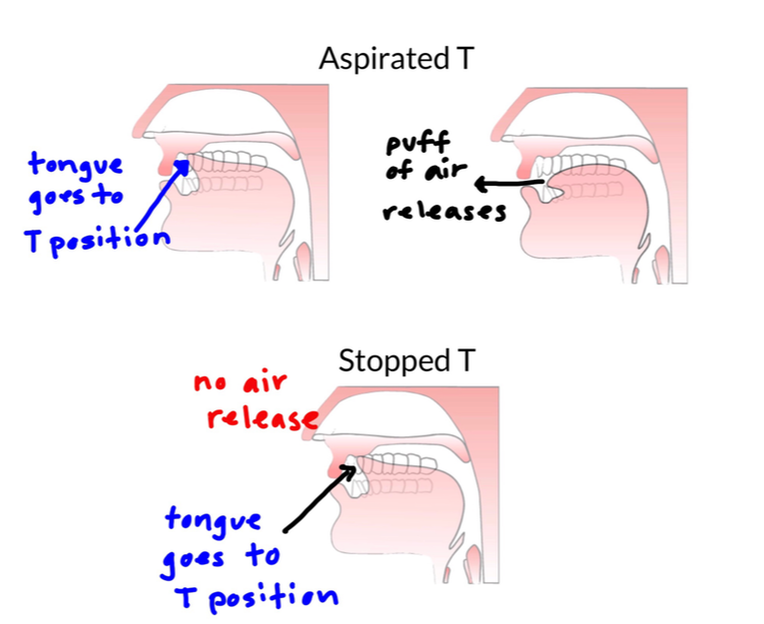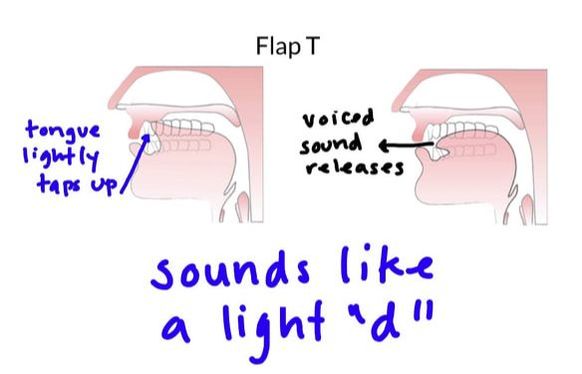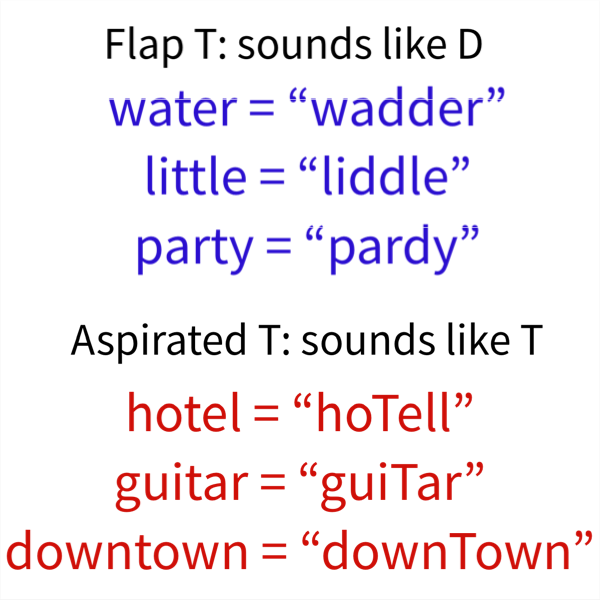|
In American English, we have 3 different ways of making a "T" sound. For all of the /t/ sounds, we use the tip of the tongue and the alveolar ridge (the roof of the mouth just behind the teeth). In the start of words, we always use an aspirated t. This means we have a puff of air which escapes when we release the t.
At the ends of words, Americans often use a stopped T. This means they move the tongue into position for the /t/, but they don't release the air.
In the middle of words, we use aspirated T, stopped T, and flapped T. A Flap T is different because the voice is on (unlike the other types of T, which are voiceless), and a flap T does not have any build-up of air like a T or a D. The tongue contacts the alveolar ridge lightly and releases immediately. If you have difficulty with flap T, it can help to think of it as a light D sound.
Unfortunately, we don't always use a flap T in the middle of words. The video below gives you examples of the following patterns:
Medial T is usually flapped when between 2 vowel sounds. This includes final T when the next word begins with a vowel and we link words. (Final T Linking is discussed here.) Most words with -ter, -ted, -test, -ting, -ty better, batter, butter, letter, waiter, writer, water, litter, greater, lighter, wetter waited, righted, lighted, matted, sighted, fitted, metabolic, artificial, comforting, dirty, city greatest, hottest, fatal, hospital, turtle Medial T (stopped when followed by syllabic n or -ment, -ance, -ly, -m) Button kitten mittens rotten cotton mountain threaten Appointment, department, commitment, disappointment, adjustment, treatment Important, Importance, combatant, pollutant, Ultimately, infinitely, Atmosphere Medial T between 2 vowels (aspirated when second syllable is stressed, other exceptions) Guitar potato eighteen hotel motel retirement material Architecture laboratory irritant militant Medial T (aspirated when not any of the above: in a cluster, not between two vowels) Distant, Opportunity, transportation, Intonation, enter, interpretation, reputation, representation, concentrate, multi-, sophisticated, documentation, investigate, particular, metro-, consultation, continuation, anticipation Medial nt words, can sometimes omit t: wanted, Santa Barbara, counter, anti- (eg antibiotic) inter-(eg international), representative, identification, disappointing, advantage
4 Comments
4/29/2020 09:18:13 am
I need to in joining this lessons tutorial because I want to learn pronounce
Reply
max
1/23/2024 05:12:25 pm
why is it poliTics rather than poliDics?
Reply
Speech Modification
1/24/2024 07:45:39 am
Hi, "politics" doesn't really follow the rules, but you're correct, we use a true /t/ sound in that word.
Reply
Leave a Reply. |
Categories
All
Archives
May 2024
Have Questions?
Get A Free Consultation We offer a free 30-minute phone consultation. Schedule yours now. |




 RSS Feed
RSS Feed

